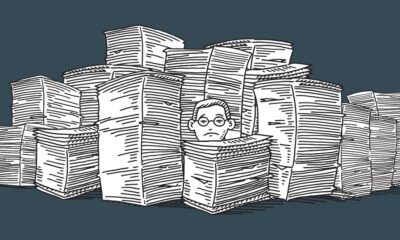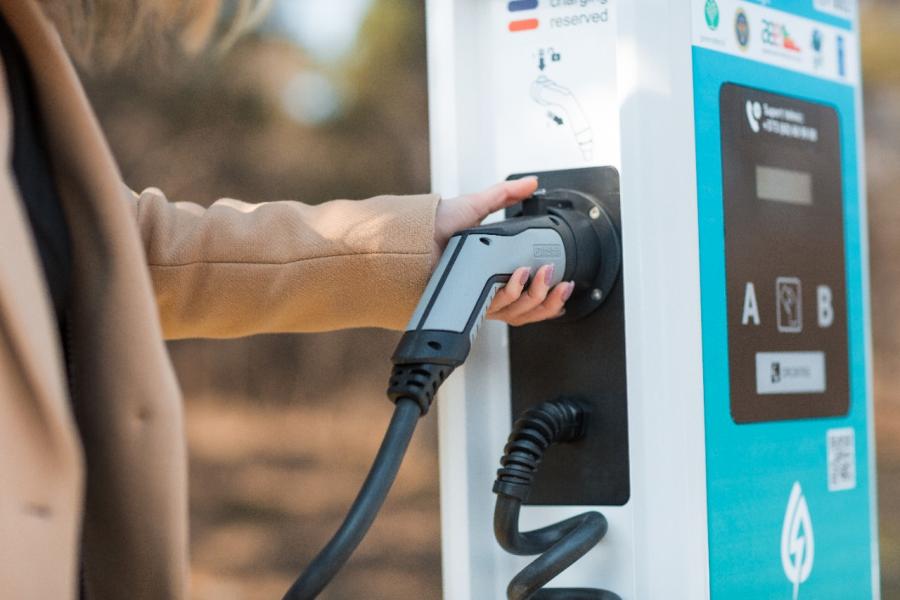
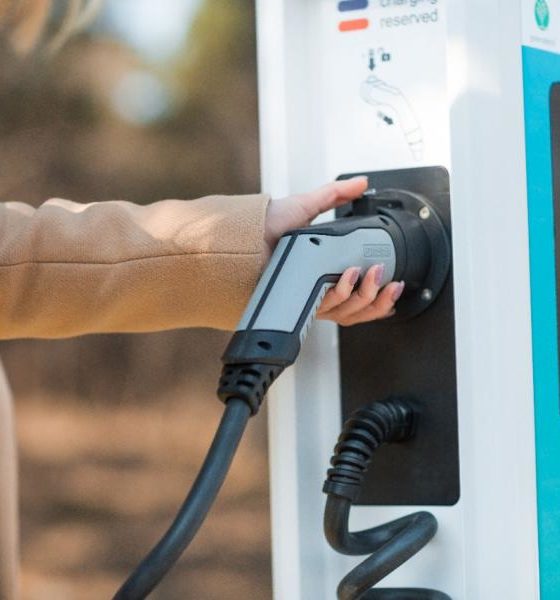
Environment
Announcing eco-friendly initiatives on Environment Day: Moldova has a network of electric vehicle charging stations now
An electric vehicle charging infrastructure was started in Moldova thanks to a partnership between the United Nations Development Programme (UNDP), the Government of the Republic Moldova and a few private companies. As a result, 22 electric vehicle charging stations were installed on the main urban routes and were tested free of charge during 1-15 May 2020.
The development project was implemented by a private company, in charge for the complete cycle of installation and maintenance of electric car refuelling stations, from design to commissioning. The total cost of the project amounted to $292 000.
The charging stations were located in the gas stations’ parking lots of a partner company in 17 localities all over the country.
The project also includes 8 electric car refuelling stations completed by the end of May and 30 stations to be installed in June-August. By the end of the year, their number will reach a total of 60 units, along the routes connecting Romania to Ukraine, assuring the possibility of transiting the country by electric cars, according to a press release of the UN Moldova.
The maximum power of a three-phase station is 44 kW, while 80% charging is met in about one hour. The equipment is compatible with all types of electric vehicles and allows for the simultaneous supply of two cars.
The initiative is part of the “Moldova Sustainable Green Cities” project (2018-2022) funded by the Global Environment Facility (GEF) and implemented by UNDP Moldova, aiming to catalyse investments in green development with low carbon, applying integrated urban planning approaches, encouraging innovation, participatory planning, and public-private partnerships.
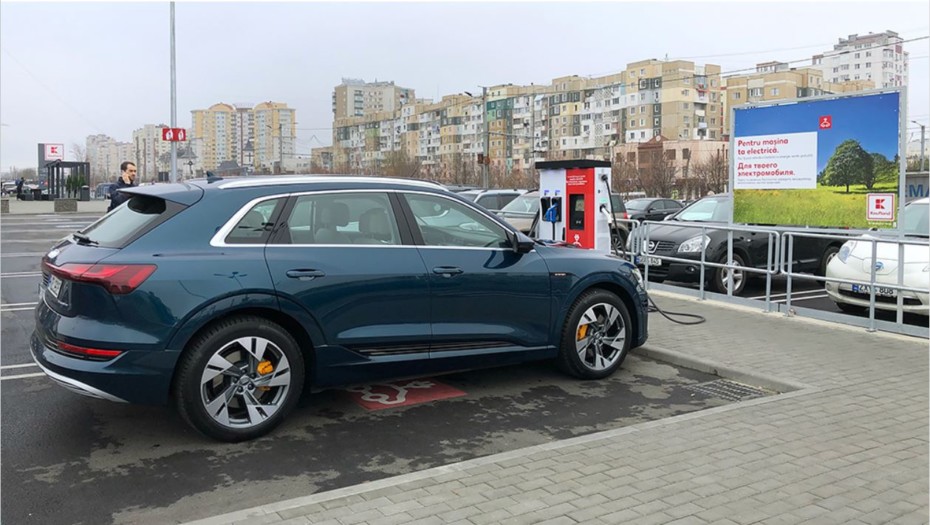
Source: piataauto.md
Additionally, a few multinational retailing company that operate in Moldova also got involved in the initiative of extending the network of electric vehicle charging stations and installed their own electric charging stations in the parking lots of their stores. Therefore, customers and visitors can benefit from free recharging. Each station usually has two chargers, serving two cars simultaneously at a capacity of 22 kW each.
With the development of electric vehicle charging infrastructure, the number of electric vehicles also increased in Moldova. Thus, whereas at the end of 2018, there were 99 electric cars registered in Moldova, in October 2019, their number reached a total of 222 electric cars. Only in the first 9 months of 2019 the number of electric cars registered in Moldova has more than doubled, said the portal piataauto.md.
Taking into consideration that the network of electric vehicle chargers extended in 2020 and still is planned to be developed, it is also expected that the number of electric car holders will increase even more in the future.
Photo: UNDP
Environment
COVID-19 in Moldova: What happens to medical waste during the pandemic?

Moldova is going through its second pandemic year. Starting today, certain groups of people started to be immunized in the third stage of vaccination, as the Ministry of Health Labour and Social Protection (MHLSP) announced. “Following our discussions, the need for gradual and organized launch of new vaccination stage was expressed, according to the National Immunization Plan against COVID-19.” To date, 252 949 confirmed cases of COVID-19 were recorded in Moldova. Also, a total of 192 845 vaccine jabs were administered.
Beside the official statistics, there are figures kept into oblivion, intentionally or not, simply because they are not monitored by the authorities. Such figures include the process of COVID-19 pandemic waste management, which, as it seems, is implemented with a lot of malfunctions. While handling of healthcare waste in the country is still emerging, both healthcare workers and common citizens are not fully aware of the danger they expose themselves and the environment to when throwing away bio-medical waste in the general waste bin, on the street or, sometimes, in the sewerage system (!).
The most dangerous part of medical waste is infectious waste generated by households and medical institutions during the COVID-19 pandemic, including potentially contaminated materials such as masks, gloves, tissues, disposable clothes or used and expired medicines, as the 2020 UN Environment Programme Report showed. Such infectious waste requires special sorting, storage, transport, treatment and disposal processes. “Although most governments have made some efforts to improve the situation, they are inadequate to manage even the healthcare waste that is generated in normal times,” the report states. It’s the case with the Republic of Moldova as well.

An investigation published by “CU SENS” media institution displayed the reality of Moldova’s healthcare waste management during the COVID-19 pandemic: the dangerous garbage gets burned on hospitals’ territory or it is placed in the general waste bins, despite the fact that this is strictly forbidden, and while hospitals own special dumpsters for bio-medical waste. When the management of the hospitals was notified about the violations, they denied them, saying that such cases of inappropriate waste management would be unique. Some of them interpreted the journalists’ checks and questions as provocations.
According to Moldova’s sanitary regulations on healthcare waste management, such waste has to be treated in autoclaves. Still, even when hospitals have their own autoclaves, they seem to not use them regularly. Moreover, the rules regarding disposal, storage and transportation of medical waste were observed as being totally ignored in the monitored healthcare institutions, that meaning an even higher risk of infection for people who get in contact with the inappropriately managed waste.
The National Agency of Public Health (NAPH) representatives stated that whereas there is no official statistics regarding healthcare waste management, the situation is still monitored by the institution. The data regarding the companies in charge of healthcare waste treatment is also very fragmented. The management of such a company declared that only a small volume of bio-medical waste is transported to them for treatment. The rest is placed in the general waste bins, as a cheaper alternative for hospitals.
Another critical issue is related to the way citizens dispose medical waste (protective masks or gloves, for example). Instead of being sorted and disposed separately, such medical waste also gets in general waste containers or, what is worse, is flushed in the sewerage system. Workers of the public company in charge of sewerage system management in the capital city continuously face the problem of such waste dumped in the city’s sewerage network. Each time they need to unlock a sewer pipe, they find disposable masks and gloves there, which are irresponsibly thrown away.
See also: Waste Management in Moldova: is the society ready to sort and recycle?
Photo: istockphoto.com
Environment
Waste Management in Moldova: is the society ready to sort and recycle?
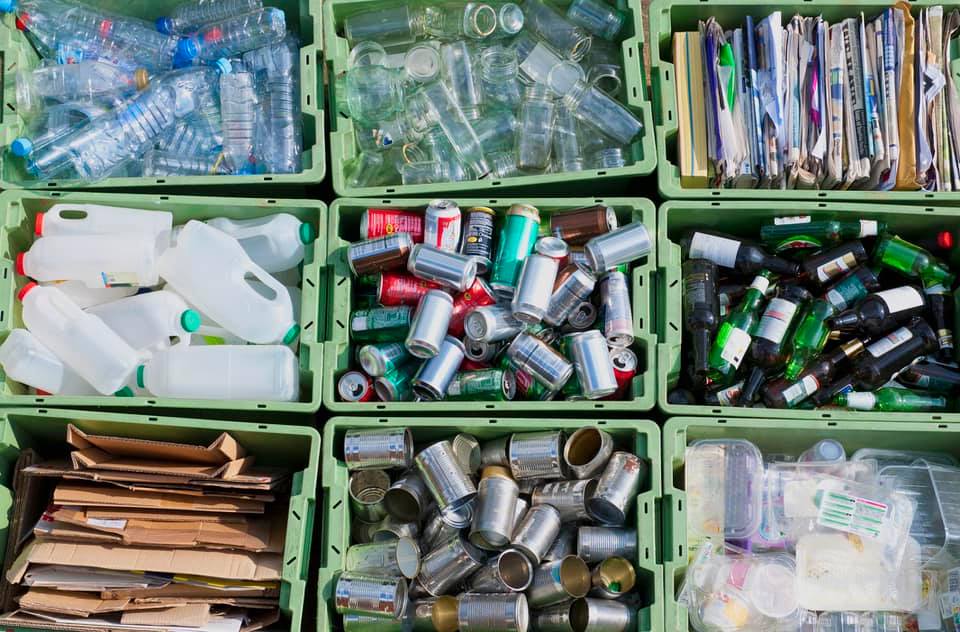
Many say that people in Moldova don’t have the necessary knowledge or motivation to start separating their rubbish, nor have they the proper mindset to do it thoroughly. They say: “people in Moldova are not educated, authorities in Moldova don’t have budgets to sort and recycle.” However, when an opportunity to improve things is given, it still gets irresponsibly missed. How does this happen?
While there are entire cities in Japan that conduct waste management programs, which include separating trash into 34 categories (!), as well as recycling and composting almost the entire amount of household rubbish, cities and villages in Moldova still dump their trash in landfill sites.
There is only one private company located near the Moldovan capital city that has been trying, for years, to convince citizens and authorities that separating and recycling waste is not impossible to implement. Even though we are talking about a country with no infrastructure in this respect, and it does require a considerable effort and investments, it is also more ecological, healthy and can even be profitable to recycle and reuse the waste material.
A problem or a solution?
On January 21, the company ABS Recycling – the only waste sorting station in Chisinau – published an open letter addressed to President Maia Sandu, Mayor of Chisinau Ion Ceban, the Chisinau Municipal Council, as well as to the related ministries, stating that the company must close down its activity related to mixed municipal waste sorting.
According to the company’s statement, thanks to the existing sorting lines, 12 types of recyclable waste was sorted by 200 employees, that meaning 15% of the delivered rubbish total mass or 40% of its volume. Consequently, less trash arrived in Tantareni – the main landfill site where the rubbish from Chisinau has been disposed for decades, creating a multitude of environmental and health problems for residents.
About 600 tons of waste are transported from Chisinau to the Tantareni landfill site every day.
ABS Recycling has been sorting the mixed municipal waste for free, within a pilot project in collaboration with Chisinau City Hall since 2017. The sorted materials were shipped for recycling afterwards. President of ABS Recycling, Serghei Balica, claimed that the activity of separating the municipal waste couldn’t be continued due to sorting costs, which were higher than the value of recyclables. “If there is no support from the local authorities as the main waste supplier, the bankruptcy of a private company takes place,” mentioned the company’s representatives.
Mayor of Chisinau, Ion Ceban, claimed that he was never against the activity of ABS Recycling and that the municipality didn’t close down the waste collection and sorting station, which is a private business project.
“We will make every effort to prepare the technical task and complete all legal formalities for launching the partnership. I remind you that in 2016, this company launched its activity within a pilot project with the need to collect plastic to develop the recycling service. Thus, several tons of municipal waste reached ABS Recycling every day, the company kept 15% of waste, which was later taken to the recycling factory in Peresecina,” said Ceban. At the same time, no statement regarding the needed financial support from the local authorities was made.
According to Municipal Councillor, Ina Coșeru, the Chisinau Municipal Council voted, in August 2020, to establish a public-private partnership for sorting the rubbish collected in the capital city, but no funds from the public budget were allocated for sorting the mixed waste. Moreover, a contracting company wasn’t identified, as NewsMaker informed.
Beside establishing a public-private partnership for sorting the waste collected in the capital city, there is a faster option of organising a tender, where resources would be identified and an agreement could be reached with a private company proposing the lowest price, as the environmental activist Evghenii Camenscic declared.
At the same time, the tax for municipal waste management covers only the costs of collection, transportation and partially for storage of municipal waste, excluding the sorting stage, as it is mentioned in the Declaration of the National Platform of the Eastern Partnership Civil Society Forum on Household Solid Waste Sorting in Chisinau.
Citizens instead of authorities
ABS Recycling representatives specified that the company still collects and sends for recycling the waste which was separated at home and thrown away in the company’s wire containers and the yellow container of the municipality. They also mentioned that the company doesn’t intend to cease its activity.
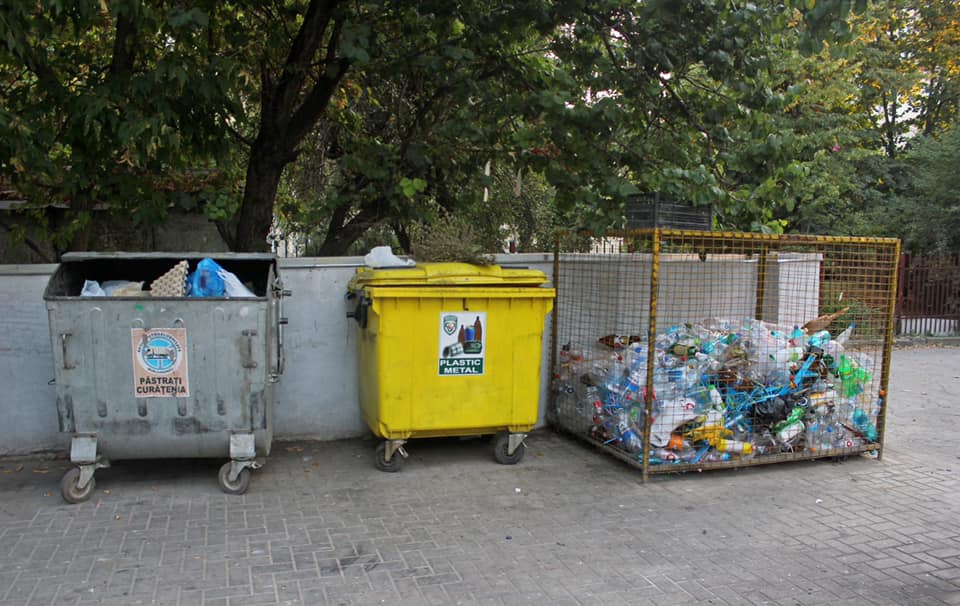
“On the contrary, we will activate more intensely, according to another working model, which excludes dependence on political decisions.”
The company asked the residents of Chisinau to fill in a request of installing a garbage can for collecting packaging waste. “The wire containers will be installed by ABS and serviced free of charge.” In such a way, the ordinary citizen would become the waste supplier, not the municipal authorities, as it is supposed to be.
“Our goal is to invest in the environment and clean up the city according to the models practiced in developed countries. This is what we will continue to do, far from political quarrels.”
What’s more, the company encourages people to post on social media about their experience of sorting, reusing, sustainable purchasing to share best practices, inspire and educate others.
**
The Law no. 209/2016 on Waste Management, adopted several years ago, includes the provisions of the Waste Framework Directive of the European Union, which are mentioned in the Moldova – European Union Association Agreement. The Republic of Moldova committed to improve the waste management process by implementing all waste management processes (collection, transportation, recovery through recycling and energy, disposal by storage).
“It’s a matter of deep regret that this is done to a very small extent and only at the initiative of individual economic agents or civil society, not at the initiative of local public authorities, although municipal waste is the main task of local public administration,” it is mentioned in the Declaration of the National Platform of the Eastern Partnership Civil Society Forum on Household Solid Waste Sorting in Chisinau.
The population of the Moldovan capital city produces more than a third of all country’s waste. 65% of municipal waste collected in Chisinau is represented by the household rubbish. The share of waste that is sorted at home is almost insignificant. This is why, the only waste sorting station in Chisinau hires only several employees (instead of 200 employees who worked before) to separate and transport the waste collected through their own containers.
Moldova (especially its big cities) needs a thorough industrial transporting and sorting system, so that materials with potential for recovery can be recycled, instead of reaching landfills sites.
Nowadays, most of the country’s waste becomes garbage, being disposed on landfills sites (some of them being unauthorised and polluting water, air and soil) or is destroyed by combustion eliminating toxic gases in the air.
As it seems, central and local authorities are the most unprepared to face the situation as it is. They hide in plain sight, refusing to cooperate, invest and look for solutions. Moldovan citizens lack the basic knowledge and long-term perspective regarding the rubbish disposal and the degree of harm it can cause. The latter is easier to correct though, when there is a untrustworthy government, with officials who don’t understand that they are the citizens of the same country and they are also affected by the same environmental issues.
Photo: ABS Recycling Moldova| Facebook
Environment
A natural water cycle? The floodwater dangers that are neglected in Moldova
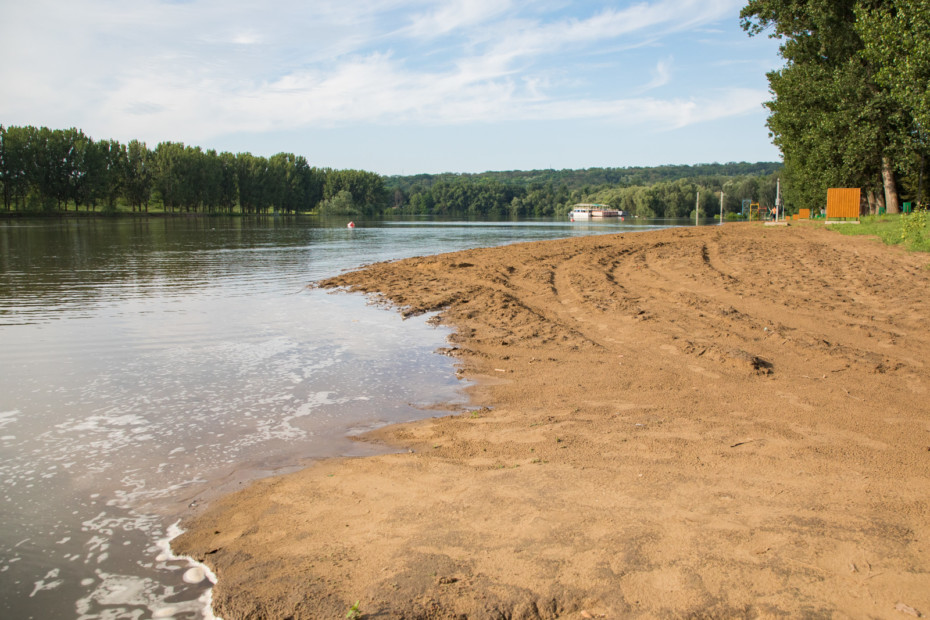
Due to heavy rains in Ukraine, Romania and the Republic of Moldova, the employees of the General Inspectorate for Emergency Situations (GIES) were working during the entire week to eliminate the consequences of the floods in the whole country.
The water level in the Dniester River increased by up to 3.5 m in some northern localities, while the State Hydrometeorological Service forecasted further increases of water level by July 2. Therefore, residents were evacuated from the villages at risk of flooding both from the Dniester and the Prut riverbeds, cleaning works were performed, protection dams were build or fortified, according to a note of the Government of Moldova.
However, beside the problem of flooded households and farmlands, there is also a critical ecological problem. Moldova is still a country with a limited access to centralised sewerage systems. The majority of population (especially in rural areas) still use an improvised toilet placed in the yard (latrine). Moreover, there are still localities in Moldova with no access to a centralised water supply systems, the water from local reservoirs being consumed. The floodwater accelerates the transfer of dangerous pollutants from various sources of pollution (including latrines) to the water that gets in the supply systems or local wells.
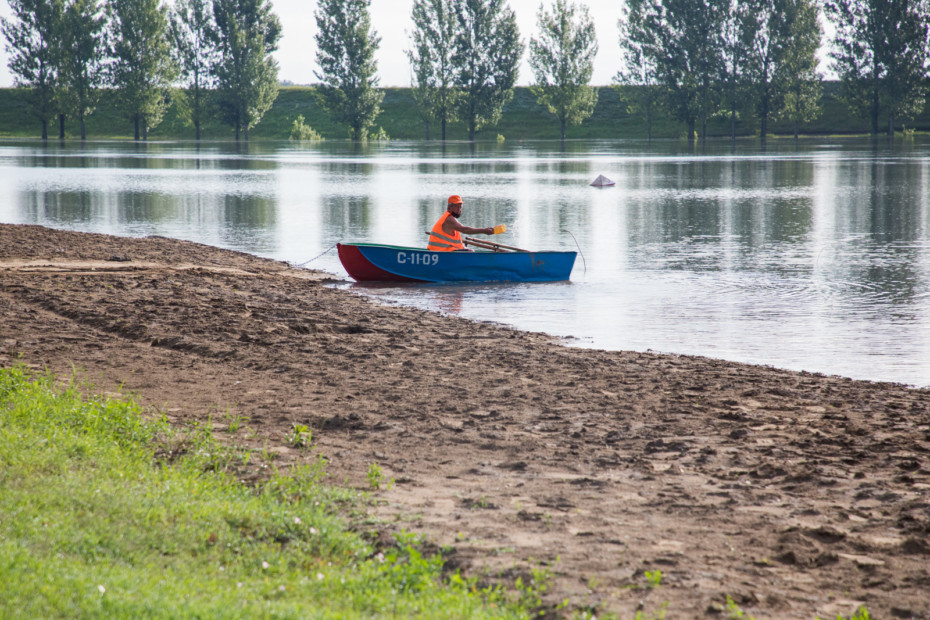
Source: gov.md
No water supply systems
According to the National Bureau of Statistics (NBS) data, 81.8% of population had access to the public water supply service in 2019. 53 cities and 724 rural localities had access to the public water supply system in the last year, which represented only 50.7% of the country’s localities.
About 51% of Moldovan villages do not have access to drinking water supply from public systems.
The localities from Chisinau (88.6%) and Gagauzia (78.1%) have the highest level of connection to the public water supply network. The lowest level is recorded in the North (35.5%). The water is usually captured from surface sources – 64.6%, from underground sources – 25.5%, or from other sources – 9.9%, informed the NBS.
Floods can lead to a higher risk of running out of drinking water for all localities in the Prut and the Dniester riverbeds, which do not have access to centralised water supply systems. Moreover, even those that do have access to such systems risk to drink contaminated water, if the water is captured from sources that came in contact with floodwater.
The National Agency for Public Health (NAPH) reported high levels of non-compliance of the water from local wells, concerning both chemical and microbiological parameters. “This situation is determined by the lack of centralised sewerage systems, unsanitary conditions, the location of latrines and landfills in the immediate vicinity of wells,” noted the agency.
It also warned that the contaminated water from wells need to be pumped out and walls need to be cleaned in case if floods. When the water in the natural reservoirs is back it needs to be disinfected and tested. The question is how many flooded localities from Moldova respect the NAPH recommendations.
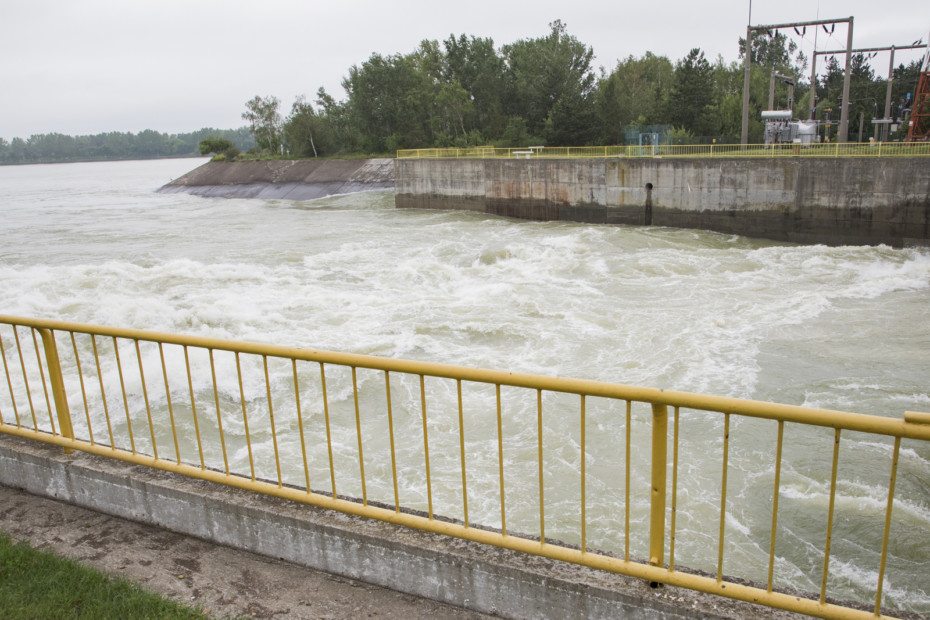
Source: gov.md
No sewerage systems
A reportage of Moldova.org disclosed that seven out of ten households in the Republic of Moldova do not have a toilet in the house. On average, 21 out of 30 people use a latrine.
Only 126 out of 1682 localities have sewerage systems and only 73 of them have functional sewage treatment plants. Without a sewage treatment plant, wastewater reaches the soil and rivers, causing serious pollution.
Only 7.6% of Moldovan localities are provided with public sewerage system (95.0% of cities and 4.4% of rural localities).
The highest share of localities with access to the public sewerage system is registered in the capital city area (71.4%) and Gagauzia (15.6%), while the localities in the South and North have almost no access to such systems ( 5.4% and 4.7%), said the official NBS data for 2019.
Only a few localities from Moldova have access to decentralised sewerage systems with attached treatment plants and there are rare cases of households where home treatment plants attached to the individual sewerage system are built.
“In the 21st century, latrines must go down in history,” claimed the NAPH. In case the improvised toilets, built in the yards, are flooded, that could cause a real ecological catastrophe.
No sewage treatment plants
The rivers in the Republic of Moldova are highly polluted due to sewage that is discharged in rivers, as the National Environmental Center (NEC) warned. “The level of pollution and degradation of rivers is so high that we risk causing irreversible damage to the environment, which in turn endangers human life,” said the NEC representatives.
In 2019, 97.15% of the total volume of wastewater discharged in the central sewerage system was treated, as the national statistics reported. While in big cities this share was 99.55%, only 26% of the wastewater was treated in small villages. Let’s not forget also that only 4.4% of the rural localities in Moldova are provided with centralised sewerage system. That means that the biggest quantity of discharged wastewater in rural areas doesn’t reach sewerage systems and national statistics’ reports.
The polluted wastewater gets to the surface and underground waters and from there back to the water supply sources. Floodwater drastically worsens the situation, as even more pollutants reach the water Moldovans drink or use in agriculture.
Photo: gov.md












